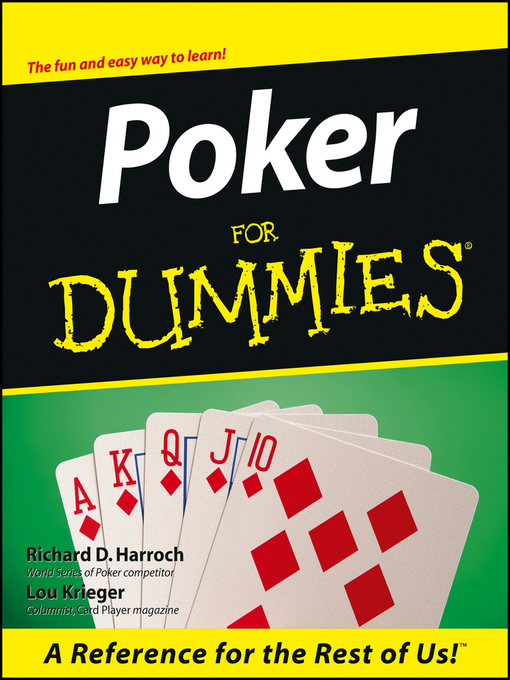Poker is America's national card game, and its popularity continues to grow. Nationwide, you can find a game in progress everywhere. If you want to play, you can find poker games on replicas of 19th century riverboats or on Native American tribal lands. You can play poker at home with the family or online with opponents from around the world. Like bowling and billiards before it, poker has moved out from under the seedier side of its roots and is flowering in the sunshine.
Maybe you've never played poker before and you don't even know what a full house is. Poker For Dummies covers the basics. Or perhaps you've played for years, but you just don't know how to win. This handy guide will help you walk away from the poker table with winnings, not lint, in your pockets. If you're a poker expert, you still can benefit – some of the suggestions may surprise you, and you can certainly learn from the anecdotes from professional players like T.J. Cloutier and Stu Unger.
Know what it takes to start winning hand after hand by exploring strategy; getting to know antes and betting structure; knowing your opponents, and understanding the odds. Poker For Dummies also covers the following topics and more:
Poker looks like such a simple game. Anyone, it seems, can play it well – but that's far from the truth. Learning the rules can be quick work, but becoming a winning player takes considerably longer. Still, anyone willing to make the effort can become a good player. You can succeed in poker the way you succeed in life: by facing it squarely, getting up earlier than the next person, and working harder and smarter than the competition.
Foreword by Chris Moneymaker, 2003 World Series of Poker Champion.
